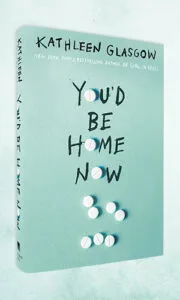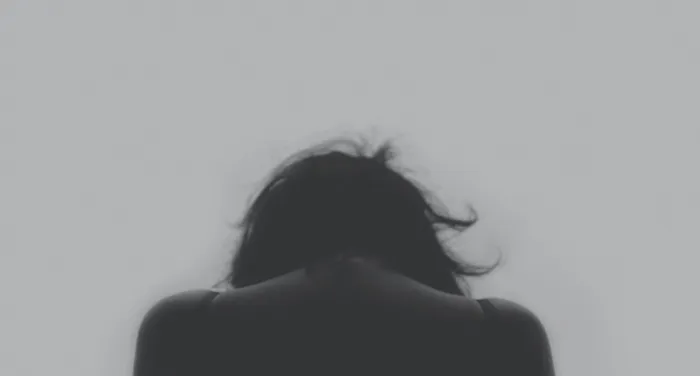
YA Books Dealing With Addiction
Content warning: The books on this list contain scenes of addiction, drug and/or alcohol use, eating disorders, abuse, and other potentially triggering events.
Almost 21 million Americans have at least one addiction, but only about 10% receive treatment. Millions more are also affected by addiction, whether it’s siblings, parents, friends, lovers, or loved ones. Addiction can refer to a variety of things, including alcoholism, drug addiction, self-harm, and eating disorders. (I am including eating disorders in this post as they can share many similarities with addiction, and often co-exist with another addiction; you can read more on this here). There are many YA books on the shelves with addiction in them, and there are just as many ways to write about addiction. There are books from different points of view, books that glamorize addiction, books that demonize it, books that are starkly honest in their portrayal, and books about recovery and living with addiction. Many books avoid the fear tactics and instead portray addiction in a nuanced, complicated way, as it is in real life. We’ve come a long way since Go Ask Alice. (Thank goodness for that — spoiler alert, it’s likely not a true story, but a story meant for scare value, written by a Mormon youth counselor named Beatrice Sparks, whose other books, coincidentally, include other anonymous “real diaries”).
You’ll notice that in many of the books on this particular list, addiction isn’t necessarily the main focus. Instead, it affects characters’ lives in various small (or big) ways. For those who have friends, family, or loved ones living with addiction or in recovery, this is how it can feel, and these books encompass a variety of situations.
This list is not a be-all, end-all list, but a good place to start if it’s something you want to read more about. For more books, check out these 100 must-reads about addiction.
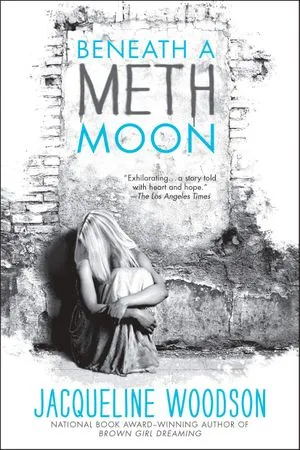
Beneath a Meth Moon by Jacqueline Woodson
After losing both her mother and grandmother to Hurricane Katrina, Laurel looks like she’s moved on and is over it: she’s popular, a cheerleader, and she’s dating a football player. But when he introduces her to meth, she realizes it lets her forget all of the painful memories and feelings, and she becomes addicted to it. Woodson poetically captures the pull of addiction and the struggle to resist it. Through flashbacks and the raw ways addiction is described and portrayed, this is a haunting, but ultimately hopeful, story.
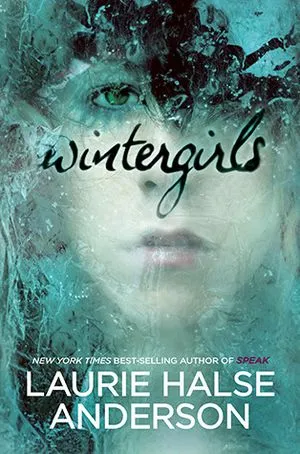
Wintergirls by Laurie Halse Anderson
Best friends Lia and Cassie are competing with each other to be the thinnest. When Cassie dies and Lia is left alone, she is haunted with “what ifs” and second thoughts. Anderson writes about Lia’s struggle for recovery and the continued pull of an eating disorder in a nuanced, poetic way that is almost visceral. She writes honestly about the addictive aspects of eating disorders and the complexities of living with one, as well as the ambivalence of starting recovery.
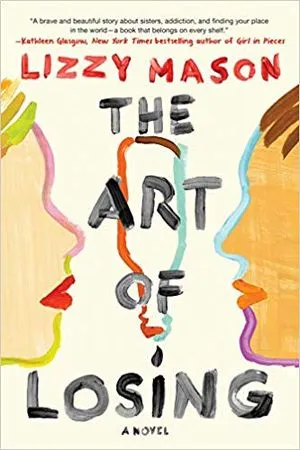
The Art of Losing by Lizzy Mason
After Haley finds her boyfriend Mike kissing her younger sister Audrey at a party, she leaves them there. When Mike drunkenly drives Audrey home, it results in devastating consequences. Not only is Haley faced with realizing Mike has a drinking problem, but she also reconnects with a neighbor, Raf, who’s just finished rehab. While Audrey recovers, Haley finds herself slowly moving forward with Raf’s help. The book addresses not only family issues, but nuances of addiction and life in recovery.
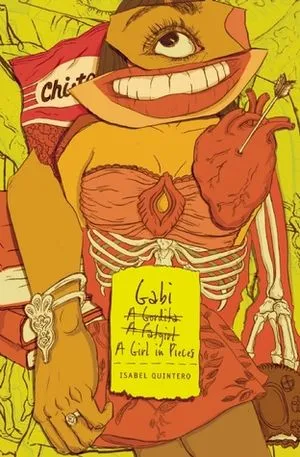
Gabi, A Girl in Pieces by Isabel Quintero
Gabi chronicles her senior year in her diary — and there’s lots to write about. Her family doesn’t think she’s Mexican enough for their liking, but she’s afraid she’s not white enough for her dream school, Berkeley. She’s also dealing with her best friend’s pregnancy, the expectations of her family, and her father, who struggles with addiction and is back in the picture. Gabi has to face the reality of his addiction and how it affects the family, along with other issues that weigh heavily on her. Through it all, though, she has her writing. In the end, this is a story about a young woman following her dreams and figuring out who she is and what she wants to pursue.
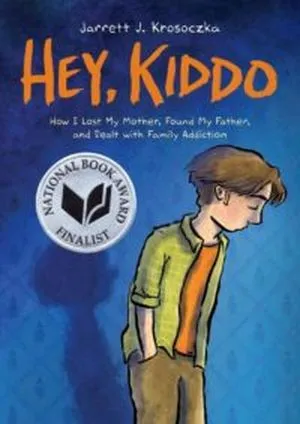
Hey, Kiddo by Jarrett J. Krosoczka
When kindergarten Jarrett is asked to draw a picture of his family, he knows — even at that young age — that it’s kind of complicated. He lives with his grandparents because he doesn’t know who his dad is and his mom lives with addiction and has repeated stints in jail or rehab. This graphic memoir beautifully shows the loving fumblings of his grandparents raising a child after they thought their child-rearing years were over, the support and love from other family members, and the ups and downs of growing up. His illustrations are placed alongside real letters that he eventually gets from his father and the grief and sadness he feels about his mother and her addiction, making for a complex look at family, love, and survival. This is a touching and raw book, and the graphic memoir format feels perfect for it.
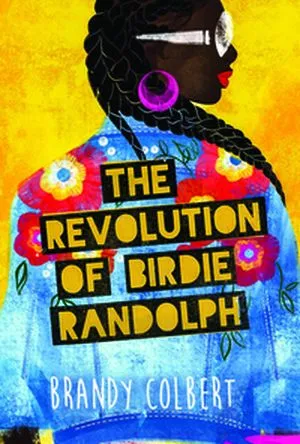
The Revolution of Birdie Randolph by Brandy Colbert
Birdie Randolph has plans. She’s well on her way to being at the top of her class, and she follows her parents’ path for her — she quit soccer even though she loved it, and studies hard so she can succeed. When her aunt Carlene, who’s been estranged from the family because of her addiction and multiple rehab stays, comes to live with them, the tension starts building. Then there’s Booker: a boy with a past that her parents would never approve of. As Birdie becomes closer to Carlene and starts to figure out what she really wants, family secrets come to the surface and nothing will be the same.
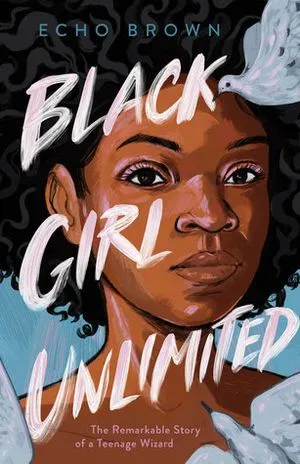
Black Girl Unlimited: The Remarkable Story of a Teenage Wizard by Echo Brown
This autobiographical novel is a powerful combination of magical realism and fantasy. Echo Brown lives on the East Side, and both of her parents are addicted to the white rocks. She navigates nights with her parents and the effects of the rocks and sees the havoc it wreaks on the family — but she has her magic through it all, and it helps her survive. When Echo starts school on the rich West Side, navigating the vastly different spaces starts to get complicated. As the darkness around her grows, she has to figure out how to piece herself together to move forward.
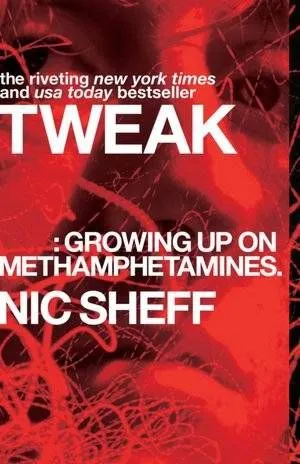
Tweak: Growing up on Methamphetamines by Nick Sheff
Sheff first got drunk when he was 11. After that, he smoked pot, did cocaine and Ecstasy, and eventually became addicted to meth and amphetamines. This memoir is a harrowing, intense look at the depths of addiction, the way it changes your thought processes and actions, and how it can take root and grow uncontrollably. Sheff is honest to the point of being brutally so, and his unflinching prose illuminates addiction, the path to recovery and reconciliation, and the challenges of sobriety.
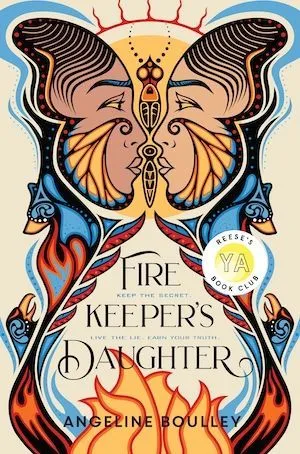
Firekeeper’s Daughter by Angeline Boulley
Daunis never feels like she belongs. Half-native and half-white, she never quite feels like she fits in anywhere. After witnessing the murder of her best friend, she becomes an informant for the FBI about an investigation into a drug that’s become widespread among her community and family. Boulley skillfully writes about the effects of drug addiction in Native communities and the effects of colonization and exploitation, as well as the relationships between trauma and addiction. The result is a beautiful and complex novel that ends up being more than just a thriller.



